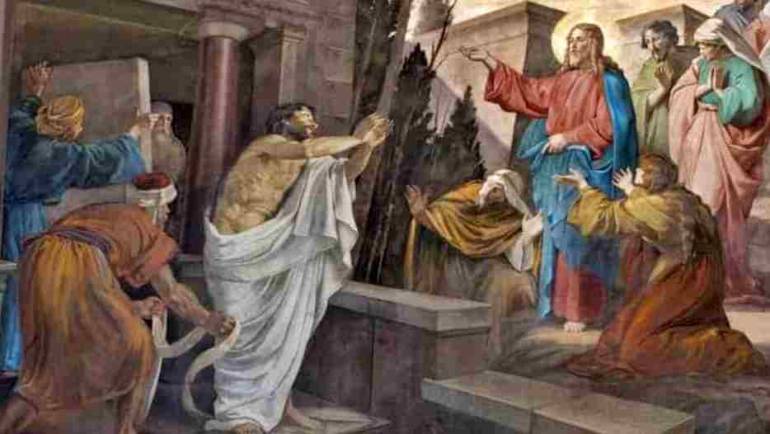The Lord sanctifies Israel!

March 23, Saturday of the Fifth Week of Lent
Memorial of Saint Toribio de Mogrovejo, bishop
Daily Readings: Ezekiel 37:21–28; John 11: 45-56
The Lord God, through Prophet Ezekiel, foretells the complete restoration of the people of Israel, where they will unite to form one nation under the rule of one king and abandon idol worship, transgressions, and apostasies. The Lord will cleanse them of all their sins. The Lord will be their God, and all the people will be His own.
God himself will be their lone shepherd. The often-repeated demand then follows: “They shall follow my ordinances and be careful to observe my statutes” (v. 24). Since God will bless them with peace, they will multiply. God’s dwelling place will be with them forever.
In the Gospel of John, Jesus performs seven signs. The raising of Lazarus is the seventh and last with which the Pharisees and the chief priests call a meeting of the council to immediately decide upon a further course of action. They politicize Jesus' ministry and conclude that putting him to death is the only option. The classical prophecy of Caiaphas, the high priest of that year, appears in this context: “You do not understand that you should have one man die for the people rather than have the whole nation destroyed” (John 11:50).
Certainly, it is in line with God’s plan. God knows how to write straight lines with crooked sticks. The fact that people began to believe in Jesus threatened the religious leaders, and their insecurity urged them to plan to put him to death. That sets the tone for tomorrow’s solemn entry of Jesus into Jerusalem, with which the Holy Week begins.
Call to Action for Catholic Living: Insecurity feelings of human persons create disastrous developments in human society. It is time to deal with my insecurity.
Radio Veritas Asia (RVA), a media platform of the Catholic Church, aims to share Christ. RVA started in 1969 as a continental Catholic radio station to serve Asian countries in their respective local language, thus earning the tag “the Voice of Asian Christianity.” Responding to the emerging context, RVA embraced media platforms to connect with the global Asian audience via its 21 language websites and various social media platforms.













